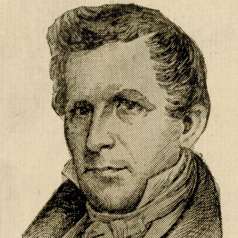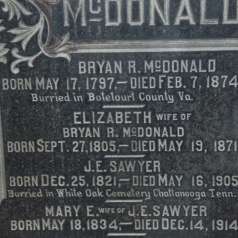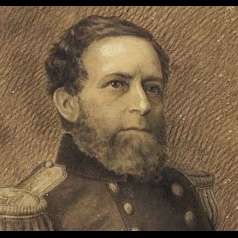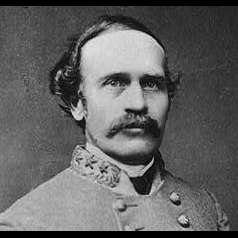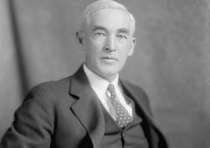
Born March 17, 1803, in Salem, Massachusetts, William Driver is credited with nicknaming the American flag "Old Glory." At age 13 Driver ran away from home to be a cabin boy on a large ship. At 21, he qualified as a master mariner, licensed to sail a ship. His mother and the "girls of Salem" sewed the flag which he hoisted on his first ship and christened "Old Glory." On an 1831 voyage to the South Pacific, Driver's ship was the sole surviving vessel of six that departed Salem the same day. He subsequently escorted 65 descendants of the Bounty survivors from Tahiti home to Pitcairn Island and is said to have been convinced that God saved his ship for that purpose.
In 1837 Driver left the sea. His wife had died and he moved with his three children to Nashville, where his two brothers lived. Driver remarried and fathered nine more children. Employed as a salesman for various Nashville businesses, he served as vestryman of Christ Episcopal Church. Every holiday, he displayed "Old Glory" outside his house by a rope extending from an upstairs room to a tree across the street.
During the Civil War Driver remained loyal to the Union and sewed "Old Glory" into a quilt for safekeeping. When the Union army occupied Nashville, Driver gave the flag to the troops to be flown for a short time over the State Capitol.
Driver died March 3, 1886, and is buried in the Nashville City Cemetery. At his request, his rescue of the Pitcairn people was inscribed on his grave marker. "Old Glory" is exhibited at the Smithsonian Museum of American History in Washington, D.C.
Tools
Key Facts
- He escorted 65 descendants of the Bounty survivors home from Tahiti.
- A loyal Unionist, his "Old Glory" flag is now in the Smithsonian; it flew briefly over the State Capitol when the Union retook Nashville.


